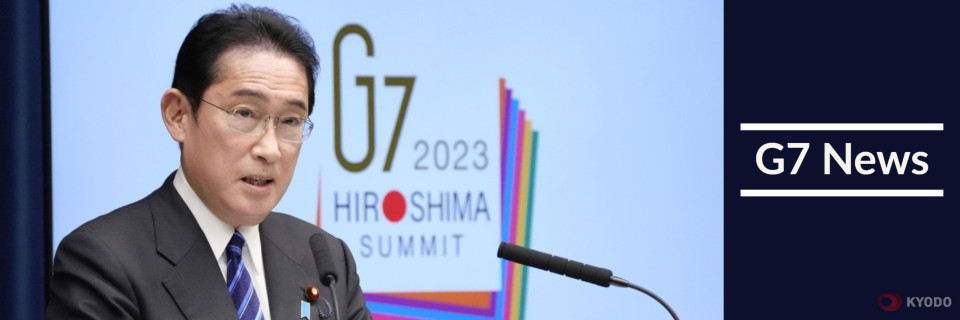Atomic bomb survivor Setsuko Thurlow has called on leaders of the Group of Seven industrialized nations to at least pledge "not to use nuclear weapons" when they hold a summit from Friday in the world's first city to suffer a nuclear attack.
Thurlow said in an interview with Kyodo News on Wednesday that the leaders, who are expected to tour the Hiroshima Peace Memorial Museum that commemorates those lost to the bombing, should also "reflect as individuals, or as human beings, on the terrible suffering that took place" and have what they learn reflected in their nuclear policies.

"I think that would bring changes more than anything," Thurlow said while adding she wants the leaders to "issue a statement on the value of coming to Hiroshima because it has great significance."
A prominent atomic bomb survivor now living in Canada, Thurlow was 13 when the bomb fell and leveled her home city of Hiroshima on Aug. 6, 1945, taking the lives of eight of her relatives including her 4-year-old nephew. She has given over 2,000 lectures relaying her story and the importance of disarmament.
Amid Russian nuclear threats over the war in Ukraine and moves around the world toward beefing up or acquiring nuclear capabilities, Prime Minister Fumio Kishida has chosen to hold the summit in the western Japan city he represents as a lawmaker, vowing to make "realizing a world without nuclear weapons" a key theme of the gathering.
Thurlow said the current global situation is "extremely dangerous," referring to heightened nuclear tensions worldwide since Moscow began its aggression against Ukraine in February 2022, and added that the leaders "need to urgently vow never to use or allow use of nuclear weapons" before setting concrete steps toward disarmament.
The G-7 outcome document on nuclear weapons is expected to praise Kishida's Hiroshima Action Plan, which calls for measures including greater transparency from nuclear-possessing states and emphasizes the Treaty on the Non-Proliferation of Nuclear Weapons, commonly known as the Non-Proliferation Treaty or NPT, as central to nuclear policy.
But Thurlow said that not only the NPT, which Japan backs, but also the Treaty on the Prohibition of Nuclear Weapons, which it has refused to join, are needed in paving the way toward a nuclear weapon-free world, calling them "complementary."
She was critical of the Japanese government's stance of seeking deterrence under the nuclear umbrella of the United States, calling it "totally contradictory" to Kishida's stated aim for a world without nuclear arms.
Thurlow accepted the Nobel peace prize in 2017 on behalf of the International Campaign to Abolish Nuclear Weapons, a group that was integral in ensuring the nuclear ban treaty was adopted by the United Nations earlier that year.
In her address in Oslo, she called nuclear states and those under nuclear umbrellas "an integral part of a system of violence that is endangering mankind."
Thurlow is in Japan for the first time in four years for the three-day G-7 summit from Friday, during which the leaders of nuclear-possessing countries of the United States, France and Britain plus the umbrella-protected nations of Canada, Italy, Germany and Japan are expected to collectively visit the site of the atomic bombing for the first time.
Among other events during her stay in Japan, Thurlow has also received an honorary doctorate from Kwansei Gakuin University and her alma mater Hiroshima Jogakuin University on Monday.
In her address to students in Hiroshima, Thurlow praised the efforts of her home city to urge the G-7 leaders to seriously discuss nuclear abolition, and said she hopes the "momentum continues after the summit and leads to definite action."

 By Peter Masheter and Eriko Noguchi,
By Peter Masheter and Eriko Noguchi,









